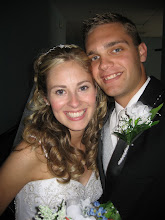-Janet Carey Eldred and Lisa Toner
- Computers have and will continue to transform writing instruction (I agree)
- Writing teachers integrating pedagogy and technology are pivotal agents in changes in technology. (I feel this is an interesting point considering the last article we read discussed how teachers in the English department at a university, I believe in Florida, were not even involved when the university set basic technological requirements that students were to know before graduating)
- The campus technology ladder: at the top=Technology-rich campuses, then we move on to technology bound campuses (with lofty goals), and at the bottom=ill-equipped campuses.
- Kudos to teachers and students e-mailing one another
- The real questions: "What can be done with computers in traditional, print-focused writing classrooms?" (36).
- One strength of going digital: access to many resources (scholarly journals, etc)
- Discussion about online classes/discussion--The online Shakespeare class that I took last semester was quite interesting. It was my first online course, and I thought I might miss the traditional classroom setting but I didn't. The instructor worked in ways to get many different classmates sharing their ideas, just as they would have been in the classroom. One thing that helped was an active instructor wanting to set up dialogues between students. I think online classes/discussions have the potential to be very beneficial for students.
- Heuristics defined-is a set process or method used to solve a problem or explore an idea
- I think this quote also goes with the last article. We should not let computers rule us. We should always be thinking about ways that we can use computers to enhance writing in the classroom. "For writing teachers integrating technology, it becomes crucial to determine how the software drives a particular way of thinking and whether or not the engine can be diverted from the programmed path and encouraged to take alternative mental routes" (39).
- Comment function on Word is great for Instructor reviewing
- Spell check can be helpful as well as annoying ( I will admit that I am one of those people that relies on spell check to catch my misspellings and because of this, I think my spelling has become poor in some circumstances)
- Thanks to the Internet, everyone can publish
- Thought the "Whole Classroom Management" discussion could have been expanded. I think technology can be such an advantage here
- Wow, that's definitely a point I haven't paid much attention to: ethical choices about technology. It's something teachers need to think about.
- Good list of what an instructor needs to think about before adopting a new technology. This part of the article I will definitely hold on to and think about beginning teaching.
- ***Students and teachers should drive "our decision making about literacy issues" (45).
-AAK

